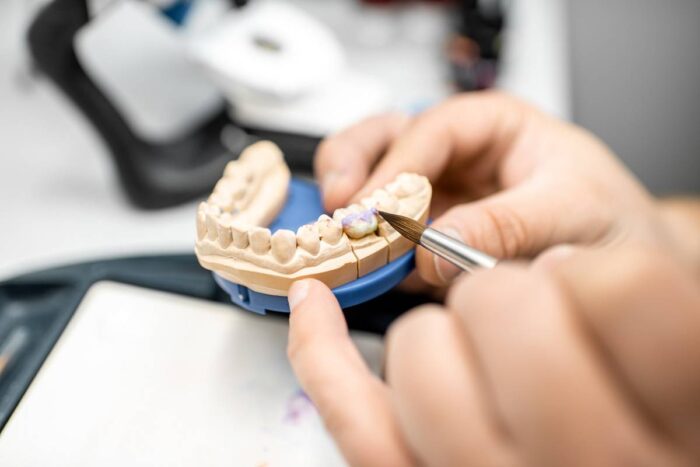Dental implants are a popular solution for missing teeth and offer many benefits. They look and feel like natural teeth, improving a person’s appearance and boosting confidence. They also preserve healthy adjacent teeth, improving oral health.
Dental implants last for many years (with proper care), making them a great investment. However, many are intimidated by their high prices. If you’re wondering, “how much does insurance pay for dental implants,” read on.
What Is The Cost Of Dental Implants

The cost of dental implants can vary widely depending on several factors, including the location, the complexity of the case, the type of implant used, the type of restoration (e.g., crown, bridge, or denture), and the experience and qualifications of the dentist or oral surgeon.
On average, a single dental implant can range from $1,500 to $6,000 or more, while a full-mouth restoration can range from $20,000 to $50,000 or more.
It's important to keep in mind that the cost of dental implants is an investment in your oral health and overall well-being and that the benefits of dental implants, such as improved appearance and oral function, can be long-lasting.
If you are considering dental implants, it's a good idea to research your options, compare costs, and discuss your specific needs and goals with a dental professional to determine the best option for you.
Does Insurance Cover Dental Implants
Some insurance plans may cover part of the cost of dental implants, but many plans do not. Most insurance companies consider dental implants as cosmetic procedures.
However, your insurance company may still cover partial costs depending on why you need the dental implant. For instance, insurance companies will cover 50% or up to a maximum annual cost of a dental procedure equivalent to conventional bridges or dentures.
In general, dental insurance plans may cover the cost of dental implants in the following situations:
- Partial coverage: Some insurance plans may cover part of the cost of dental implants, such as the surgical placement of the implant or a portion of the crown or bridge restoration.
- Medical necessity: If a dental implant is necessary for medical reasons, such as to correct a jaw abnormality or to support a denture, it may be covered by insurance as a medical expense.
- Missing tooth clause: Some insurance plans have a "missing tooth clause" that covers the cost of a dental implant to replace a missing tooth.
Likewise, understanding the different procedures involved in a dental implant may help you determine which procedures your insurance provider covers. Here are the essential steps involved in dental implants:
- Tooth extraction: Most insurance companies cover tooth extraction's entire or partial costs. This process happens if there’s still a damaged tooth present that must be removed.
- Bone Grafting: Unfortunately, insurance companies don’t cover the cost of this procedure. This is an important but optional step in case your jaw needs reinforcement to become stable and secure for the implant.
- Placing the implant: The actual process of placing the implant is considered by most insurance companies as a major procedure and can be covered by up to 50% of the cost.
- Placing the crown: Most insurance companies consider crowning, or placing the artificial tooth, a major procedure covering up to 50% of the cost.
Always check with your insurance company to determine your specific coverage for dental implants. They can provide you with information on the coverage offered by your policy, including any deductibles, copays, or annual maximums.
If you do not have sufficient insurance coverage for dental implants, there are alternative financing options available that you can consider.
Ways To Afford Dental Implants
Medical or dental insurance is not the only way to afford dental implants. If your insurance only covers part of the cost, there are several other ways to afford this procedure:
- Payment plans: Some dental practices offer payment plans or in-house financing options, which can help make dental implants more affordable.
- Dental savings plans: Dental savings plans are not insurance but offer discounted rates on dental procedures, including dental implants.
- CareCredit: CareCredit is a healthcare financing option that can be used for dental procedures, including dental implants.
- Personal loans: Personal loans from a bank or other lending institution can be used to cover the cost of dental implants.
- Crowdfunding: Crowdfunding websites, such as GoFundMe, allow you to raise funds from friends, family, and the community to pay for dental implants.
- Low-cost clinics: Some community health clinics or dental schools offer low-cost dental implant options for individuals who otherwise cannot afford the procedure.
Dental implants may be expensive, but they are not impossible to attain. You can have long-lasting healthy teeth without a huge expense by learning what your insurance provider covers and finding other options to afford a dental implant.
Check out our blog on answering the question, “where can I get free dental treatment in the U.S.?” to learn about other ways you can finance your dental needs.







